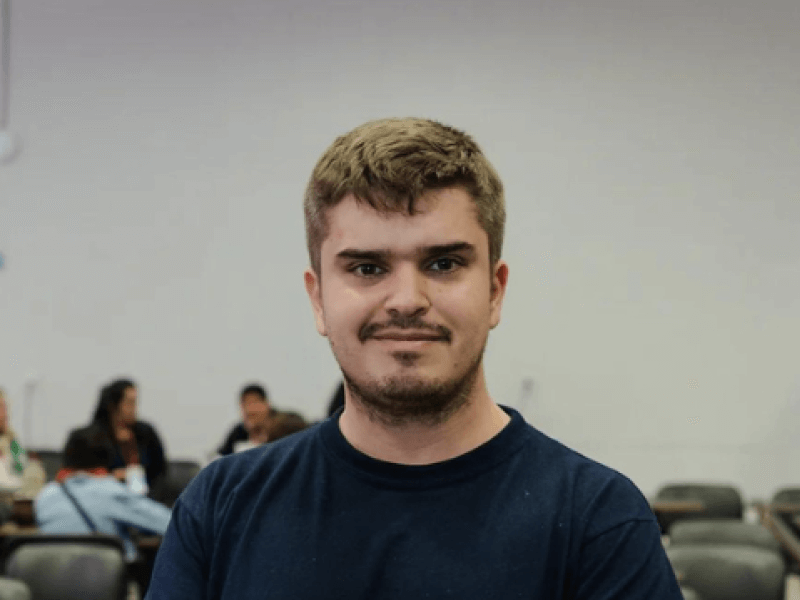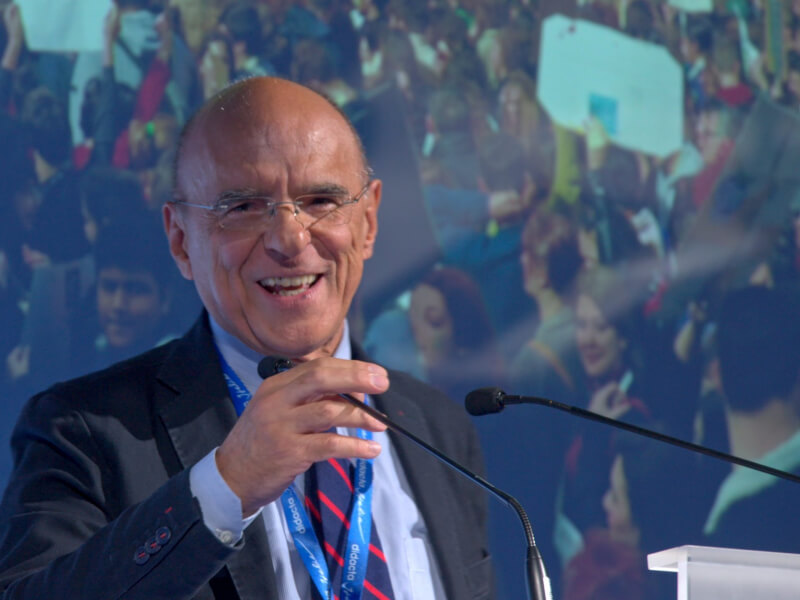19 May 2023 – Can you tell us a bit about yourself? How did you get involved in systems transformation work?
I am 33 years old, I was born in Argentina and from a very young age, I decided that I wanted to work to help change our current global systems. I studied International Relations in Santiago del Estero, Argentina and I have been a UN Model volunteer since 2008. I have dedicated practically all my life to volunteer programs especially focused on disruptive strategies for the meaningful participation of young people.
I have worked with the Sustainable Development Goals (SDG) since 2016 in Santiago del Estero, Argentina along with the Secretariat of Science and Technology, a government entity.
Before the pandemic, I began working with teams from other Latin American countries in the promotion and dissemination of the 2030 Agenda (working towards reaching the SDGs by 2030), a collaboration that was strengthened through the virtuality to which the pandemic prompted us.
In this virtual work process, one day I received an invitation to be part of the Youth Summit organized by the Club of Rome in 2020, with the aim of starting to put together teams of young people who could work on the participation and empowerment of the youth in the world and their role in systems transformation.
Why do you think it is important to empower youth in Latin America on the global stage?
Latin America is the region of the world where the largest number of young environmental activists are murdered every year. This is due to the proliferation of paramilitary groups that live off illegal crops (particularly crops used for drug trafficking) or that are hired by large extractive companies.
Our region is one of the richest in the world in terms of biodiversity and many of the resources that are consumed in the Global North to sustain their high standard of living are sourced here. It is for this reason that large economic players have little reservations when making decisions to be able to continue with their business-as-usual activities in our region, despite environmental and social impacts.
With these premises, it becomes urgent and necessary for youth to have a voice and vote in decision-making, since they are the ones who are in the first line of defense of human rights in matters related to the environment. But it is a problem that goes far beyond environmental issues, since it is the young people who suffer the consequences of poverty and inequality as well as labor exploitation (and many other problems) and the lack of resilience of our socio-political systems that currently fails take the necessary measures for justice and equity to exist.
What are the main changes we need to work on in the current planetary crisis? How can Latin America contribute to these changes?
The most urgent change we need is to transform our lifestyle. The consumer capitalism that we are taught in the formal educational system tells us that “needs are infinite while resources are finite.” This perception of infinite need is the fuel for a system that destroys our world as we increase our level of consumption in the pursuit of higher social status.
As long as we do not transform the way we understand well-being and good living, we are not going to change the way we produce and consume and therefore the way we relate to the environment and Mother Earth. In the ancestral cultural roots of Latin America we find the philosophical and cosmogonical conception of our Indigenous Peoples who understand the World as a living organism and the indispensable base of our life. This worldview entails absolute respect for everything that surrounds us and implies a way of relating to society and our environment in which happiness and good living do not depend on how much we consume, but on how we live in harmony with the planet and each other.
This is the greatest lesson that Latin America in general and our native people in particular, as guardians of wisdom and biodiversity, have to share with the world.
How does The 50 Percent contribute to empowering young people in Latin America to work on these systemic changes that we need to see?
Last December, we at The 50 Percent had the unique opportunity to be able to summon young people from Latin America to the annual summit of the Club of Rome that took place at the United Nations University for Peace in Costa Rica.
We invited young people of different geographical origins, dedications and professions to exchange points of view and experiences not only among themselves but also in intergenerational dialogue with members of the Club of Rome.
One of the products of this meeting is the declaration “Pura Vida – a call to action for our World” that we co-created together with members of the Club of Rome in a positive and fruitful intergenerational dialogue, and in which activists, Indigenous representatives, academics and experts from different sectors came together to work on six key points, while putting the greatest focus on the protection of our biodiversity and the role of Indigenous People as guardians of it.
The other product is the “Coalition for a Second Chance on Earth” (the name was inspired by Gabriel García Márquez’s Nobel acceptance speech), that brings together young professionals, activists, academics and entrepreneurs to work together to empower youth in Latin America in their struggle for systems transformation. Currently, the Coalition, under the coordination of The 50 Percent, is drawing up a roadmap to tackle this challenge.
What advice would you give to young people in Latin America who want to get involved in systems transformation?
I would tell them: dream that it is possible. Don’t give up no matter how difficult the fight seems. In the words of the great Gabriel García Márquez, I would tell them to believe that a new world is possible: “A new and sweeping utopia of life, where no one can decide for others even the way to die, where love is true and happiness is possible, and where the lineages condemned to a hundred years of solitude finally and forever have a second chance on earth.”
The 50 Percent is a global platform that empowers young people, regardless of their background, to pursue making a positive impact in their community, country, or globally. This interview was published in the special edition of the 50 Percent’s quarterly magazine, based on the “Pura Vida” declaration that calls for the protection of biodiversity, and the support for Indigenous communities and knowledge systems.






